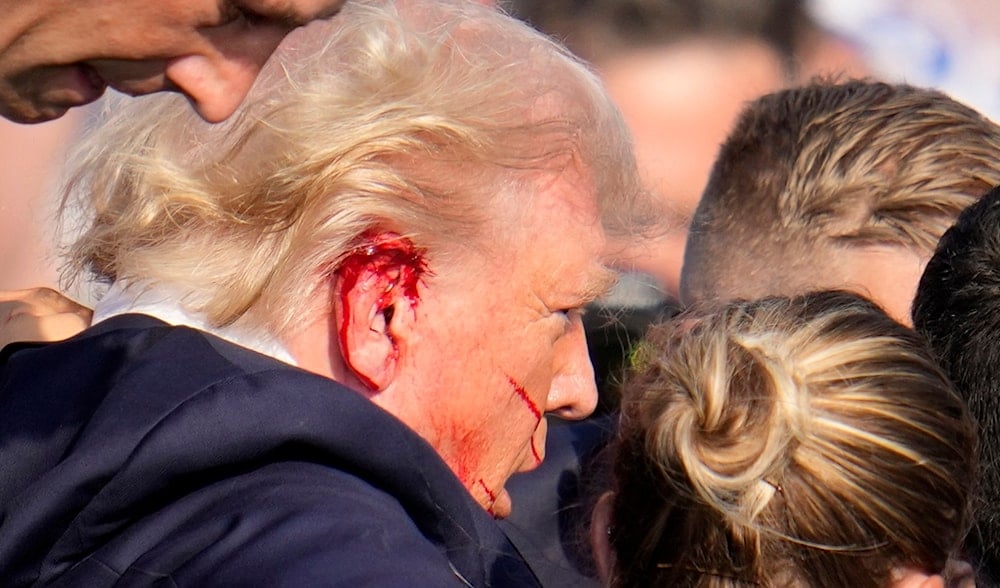Senate blames Secret Service failures for Trump assassination attempt
A Senate report blames the Secret Service for preventable failures during the 2024 Trump assassination attempt in Butler, Pennsylvania, citing communication breakdowns and denial of security requests.
-

Then-Republican presidential candidate, President Donald Trump, is escorted to a motorcade following an attempted assassination at a campaign event in Butler, Pa., on July 13, 2024. (AP)
A newly released Senate committee report on Monday has found that the Secret Service failed to prevent the 2024 assassination attempt on Donald Trump, citing a "cascade of preventable failures" stemming from poor communication, ignored warnings, and denied requests for increased security. The incident took place during Trump’s campaign rally in Butler, Pennsylvania, nearly one year ago.
The Senate Homeland Security and Governmental Affairs Committee, chaired by Sen. Rand Paul (R-Kentucky), conducted an extensive investigation that included 17 staff interviews and the review of more than 75,000 pages of documents. It concluded that the agency did not respond adequately to a heightened threat environment around Trump at the time.
"This was not a single error. It was a cascade of preventable failures," the committee wrote, emphasizing that security warnings were repeatedly ignored in the weeks leading up to the shooting.
While giving a presidential speech at a #Pennsylvania rally, presidential candidate #DonaldTrump was shot, and appears to have sustained a mild gunshot wound.
— Al Mayadeen English (@MayadeenEnglish) July 13, 2024
Officials have told CBC News that the former president's state is fine, with his entourage requesting enhanced security.… https://t.co/TokXAkkhqu
Secret Service criticized for communication breakdowns
According to the report, poor internal coordination was a central factor in the Trump assassination attempt in 2024. The Secret Service’s security room agent, whose role was to manage communications between law enforcement teams, failed to relay real-time updates from local police about a suspicious individual spotted outside the security perimeter.
One Pennsylvania State Police officer stated he informed the agent that a person with a rangefinder was being pursued, but received little indication that the warning was broadcast further. The shooter, Thomas Matthew Crooks, later climbed a nearby building and opened fire with an AR-style rifle, fatally shooting one person, injuring two, and grazing Trump near the ear before being killed by law enforcement.
The report reveals that six Secret Service agents were disciplined but not fired, with suspensions ranging from 10 to 42 days. This included the site agent, who faced a one-day suspension for "failure to follow Secret Service policy" and a 42-day suspension for "negligence in the performance of official duties."
Other personnel, including the special agent in charge of the Pittsburgh field office and supervisory agents, received shorter suspensions and were either reassigned or placed on restricted duty.
Sen. Paul criticized the agency for what he called "insufficient accountability," stating: "No one was fired. Some of these people could be responsible for security for another presidential candidate again. That’s not right."
Agents missed warnings before Butler shooting
Additionally, the committee report and past independent reviews by the Department of Homeland Security identified several missed signals. Among them: the agency failed to secure line-of-sight to elevated areas surrounding the venue and did not ensure situational awareness among all units.
A senior supervisor, Nick Menster, reportedly failed to follow up after the site agent, Myosoty Perez, did not raise a visibility issue. The panel found that senior officials assigned an inexperienced agent to lead the planning and failed to detect key vulnerabilities.
In a statement, former Secret Service Director Kimberly Cheatle, who resigned after the attempt, denied misleading Congress when she testified that no security requests were denied. "The information provided to me by personnel... confirmed my statement that no requests for additional support had been denied," she said.
Cheatle argued that the situation involved a team failure, not individual misconduct, and noted that she directed additional assets, including countersnipers, to the rally.
Current Secret Service Director Sean Curran said in a statement that the agency has since taken steps to reform operations and improve internal communication.
Investigation reveals denials of security enhancements
According to the committee, at least four requests for counter-snipers and additional security were submitted by Trump’s detail and campaign before the rally, contradicting Cheatle’s earlier testimony. Investigators found that the Butler rally marked the first time the agency had deployed counter-snipers to a campaign event for a former president.
Despite receiving intelligence about a potential plot targeting Trump and other US figures, the Secret Service reportedly failed to communicate the full extent of the elevated threat level to deployed agents. The committee criticized this as part of a “history of denials” from headquarters, leaving front-line teams unprepared.
Read more: Republicans predict rally shooting paved way for Trump to White House

 4 Min Read
4 Min Read









